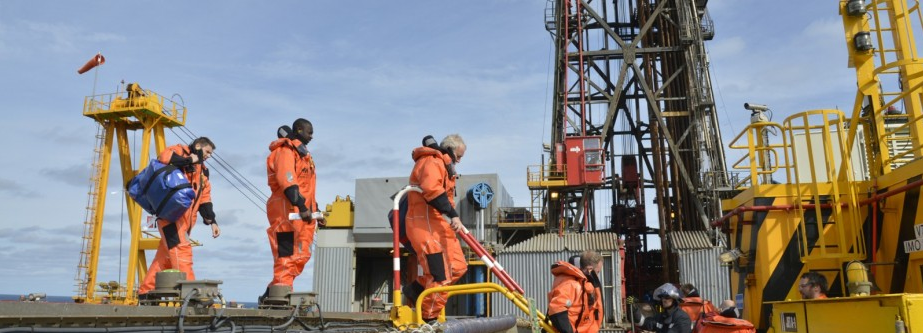Norway is a world leader in areas of the petroleum industry, specifically offshore oil and gas. From both technical and managerial points of view, Norway has successfully demonstrated the capability of not only developing new technologies/procedures but also getting the new products/manners into the market. The demonstrated concept of combining education, technology development and use of new technology is a Norwegian trademark. There is also a well-established tradition of close collaboration between authorities, industries and knowledge institutes in Norway that can inspire other countries.
Petrophysical Study and Modelling
- Data base management
- Petrophysics Modelling
- Multi Well Interpretation
- Rock Typing based on electrofacies
- Flow unit determination and layering
- Permeability Estimation
- Saturation Height Function
- Initial fluid contacts and pressure data analysis
Image log processing and Interpretation
- Fracture Analysis
- Porosity spectrum Analysis
- Permeability Image log analysis
- Lamination Analysis
- PoroTex (Heterogeneity) Analysis
- Vug Integrity Analysis
Geomechanical Study and Modelling
- Pre-Drill/ Post-Drill Borehole Stability Assessment
- Trajectory sensitivity analysis
- Hydraulic Fracturing Feasibility Study and modeling
- Sand Management/ Sand Control Program
- Casing failure (collapse/shear) study and modelling
- Reservoir compaction study and modeling
- 3D/4D coupled reservoir geomechanical modeling
Drilling and Completion study and analysis
- Feasibility studies
- Technology review
- Drilling/Completion program preparation
- Workover Planning
- Drilling Optimization
- Project Tendering/Evaluation
Borehole Seismic Services & Surface Seismic Interpretation
- Model-based / 3C VSP processing
- Offset, Walk-above and Walkaway VSP processing
- Walkaway VSP for anisotropy (VTI/TTI)
- Walk-around VSP for HTI anisotropy
- Seismic AVO Inversion
- Seismic AVOAZ Inversion
- Seismic Stochastic Inversion
Static Modelling
- Depth Maps, zonation and layering
- 3D Geocellular Building
- Facies & Property Modeling
- Data Analysis on Up-scaled Facies Logs
- Model QC and Validation
- Volume Calculation
- Uncertainty and Sensitivity Analysis
Dynamic Reservoir Simulation
- Model Construction
- Model Initialization and Validation
- Single Well and Cross-Sectional Modeling
- Full Field Model History Matching
- Prediction Scenarios
- Well Planning and Screening of Different Scenarios
- Economic Analyses and Selection of Executive Scenario
The national framework for petroleum resource management
- Petroleum policy;
- Energy sector policy;
- International legislative framework for asserting rights over subsoil resources;
- Petroleum legislation and regulations;
- Institutions for regulating the petroleum sector: Responsibilities for managing resources, safety, the environment and revenues;
- Licencing regime and process: Rights and obligations for firms to exploit petroleum;
- Managing natural resources: General principles and international practice;
- Managing the petroleum field life cycle;
- Fiscal regime: Sharing value between State and firms;
- Promoting the country for petroleum investments;
- Environmental assessments and environmental management;
- Strategic sector planning;
- Government involvement in field and infrastructure planning;
- Providing for joint use of pipelines and infrastructure;
- Reporting and monitoring petroleum operations.
Governance for securing the benefits
- Macro-economic impacts of petroleum operations in a country;
- “Dutch disease” and similar risks;
- Requirements for proper revenue management;
- Projecting the impacts of petroleum on national finances;
- Effective application of petroleum revenues for long term national benefits;
- Verifying the values: Challenges of auditing revenues and costs;
- Corruption: Causes and mitigation;
- The Extractive Industries Transparency Initiative (EITI);
- Other international initiatives for extractive resource management;
- Norway’s experience in managing the petroleum sector and revenues.
Petroleum economics
- Project economics based on discounted cash flow analysis;
- Understanding petroleum company financial statements and strategic implications;
- Decisions under uncertainty;
- Exploration economics and decision support;
- Development economics and decision support;
- Practical use of spreadsheets for economic decision analysis;
- Petroleum fiscal systems: Sharing value through taxes and contracts;
- Fiscal design considerations;
- Cost estimation and budgeting;
- Accounting and cost control;
- Petroleum and the national economy.
Capabilities for managing the sector
- Training need assessments;
- Capability development as a systematic endeavour;
- Organisational development;
- Effective team work in interdisciplinary and intercultural settings;
- Effective presentations;
- Conducting formal meetings;
- Negotiations;
- Structured analysis and decision processes.










